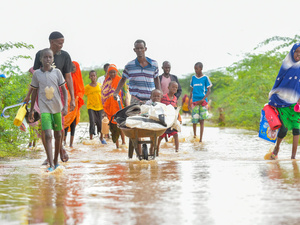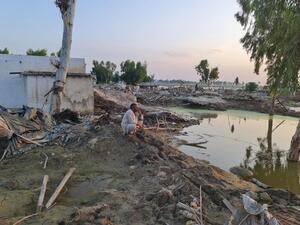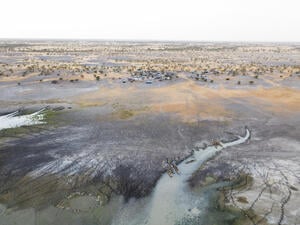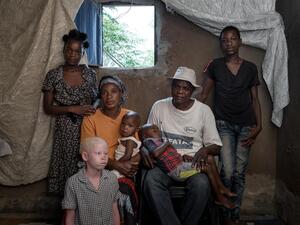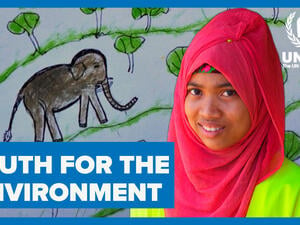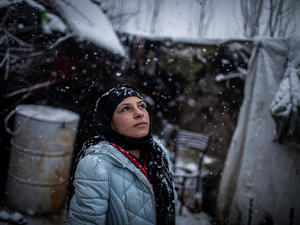Restoring peace must become a priority, says Guterres
Restoring peace must become a priority, says Guterres

UNHCR head António Guterresat his farewell press conference following the High Commissioner's Dialogue on Protection Challenge
GENEVA, Dec 18 (UNHCR) - Renewed efforts to bring peace to conflicts across the world must become the priority of the international community if current record levels of global displacement are not to continue, António Guterres, the outgoing head of the UN Refugee Agency, said today.
"We need a strong push for peace to become the priority, the absolute priority must be to bring peace," he told a farewell press conference held at the UN's Geneva headquarters.
Guterres, who ends 10 years at the helm of UNHCR on December 31, stressed that the two biggest drivers forcing people to abandon their homes and flee for safety were climate change and conflict, and called for the same diplomatic efforts which resulted in a recent landmark on the environment in Paris to be put into security.
"We must work towards instilling peace in troubled regions … the outcome of talks and current peace processes on Syria, Libya, and Yemen will have a big bearing on the progression of displacement in 2016. The result of these three initiatives will be vital to future trends," he said.
Guterres recalled that the year when he first took office, UNHCR helped up to one million people return home in safety and dignity whereas last year, due to the current security climate, only 124,000 people were able to do so.
He said that the escalation in displacement, from 38 million to almost 60 million and still likely to rise, was staggering. "It is clear the humanitarian organizations are no longer able to provide the support… we are less able to respond to the needs of people than we were 10 years ago," he said.
Recalling his time in office, Guterres - who praised the press for its independent and supportive coverage - recalled that he often felt like a nurse having to give a pill to patient needing a course of antibiotics or major surgery, and said he found it "enormously frustrating" to see people's continued suffering.
He was speaking on the same day as the publication of UNHCR's Mid-Year Trends 2015 report, covering the period from January to end June, showed markers firmly in the red in each of the three major categories of displacement - refugees, asylum-seekers, and people forced to flee inside their own countries.
The global refugee total, which a year ago was 19.5 million, had as of mid-2015 passed the 20 million threshold (20.2 million) for the first time since 1992. Asylum applications meanwhile were up 78 per cent (993,600) over the same period in 2014.
And the numbers of internally displaced people jumped by around 2 million to an estimated 34 million. Indications from the first half of the year suggest 2015 is on track to see worldwide forced displacement exceeding 60 million for the first time. In a global context, that means that one person in every 122 has been forced to flee their home.
Guterres, however, said he feared the world could be entering a more restrictive approach towards refugees and repeated his assertion that refugees were the "first victims of terror" and must not become its scapegoats.
By Leo Dobbs, Geneva

